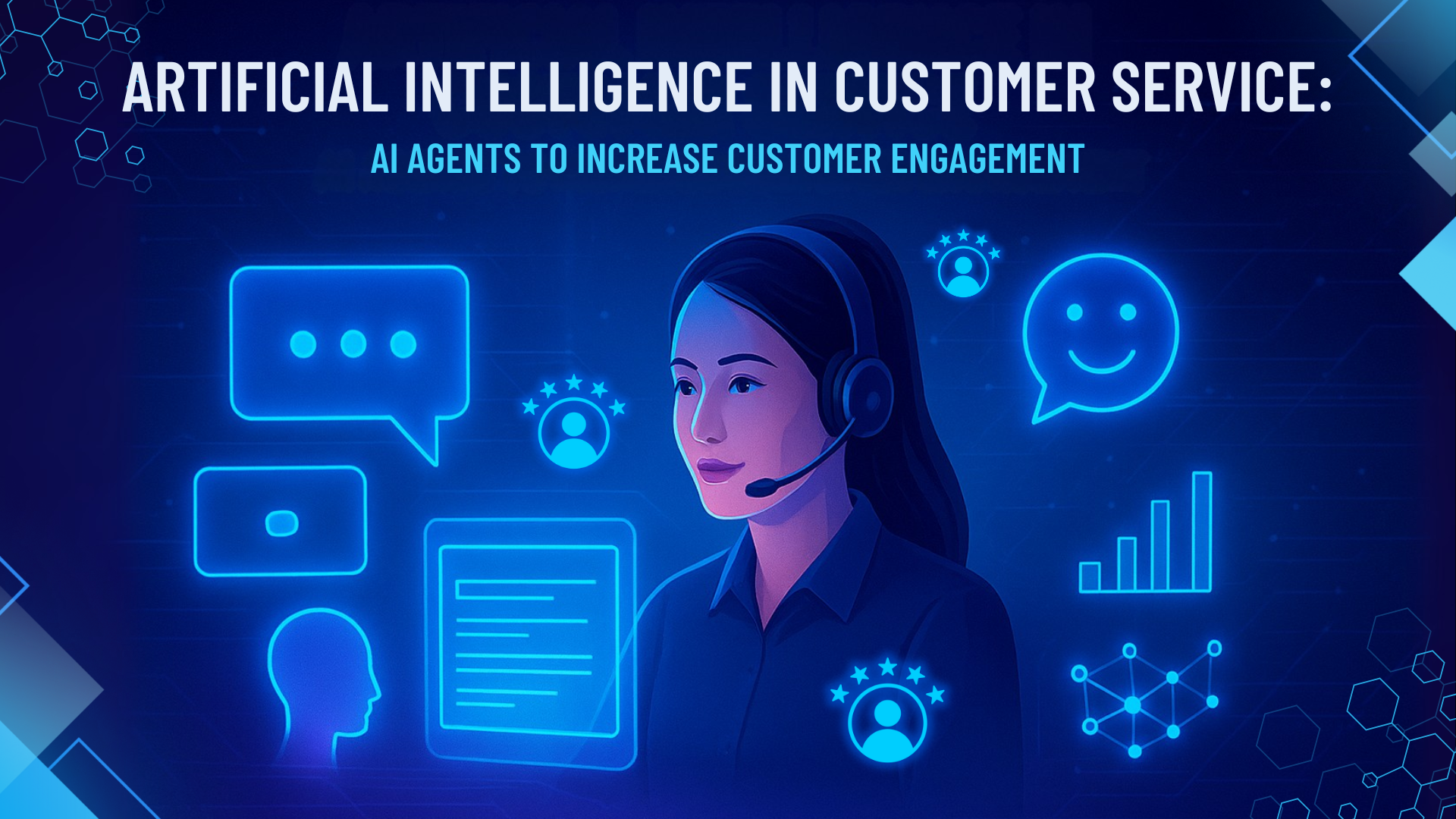In today’s fast-paced digital world, SaaS companies are on a relentless quest to innovate and outperform. Enter Artificial Intelligence (AI) — the game-changer that’s transforming the SaaS landscape. By integrating AI into their platforms, SaaS companies can achieve unparalleled efficiency, personalization, and customer satisfaction.
Why AI is a Game-Changer for SaaS
Personalized Experiences
AI dives deep into user data, uncovering individual preferences and behaviors. This allows SaaS platforms to offer highly personalized experiences, boosting user engagement and conversion rates. Imagine having an intelligent assistant that anticipates your needs!
Netflix, for example, uses AI to analyze viewer preferences, watch history, and engagement levels to dynamically adjust content recommendations. This AI-driven personalization keeps users hooked and improves customer retention.
Task Automation
Say goodbye to mundane tasks like data entry and report generation. AI automates these processes, freeing up your team to focus on strategic initiatives and ensuring greater accuracy and efficiency.
Predictive Analytics
AI and ML models forecast future events based on historical data, enhancing accuracy. For instance, AI can analyze user interactions to identify at-risk users and suggest personalized interventions to prevent attrition.
Targeted Marketing
Generative AI builds detailed customer profiles from massive data, cutting out months of research and documentation, and prioritizing high-potential segments. It also optimizes real-time ads. Stanley Black & Decker’s AI-powered strategy cut lead costs by 49% and increased leads by 163%, showcasing AI’s impact on targeting and results.
Accurate Sales Forecasting
With AI analyzing historical sales data, SaaS companies can forecast sales trends accurately, aiding in better resource allocation and strategic planning.
Product Development
AI sifts through user feedback and usage patterns to pinpoint areas for product improvement, ensuring development efforts align with customer needs.
Real-World AI Applications in SaaS
CRM Systems
- AI identifies high-potential leads, predicts customer attrition, and personalizes interactions.
- AI-powered tools like actionable meeting summaries, automated email templates, and smart ticket routing are revolutionizing CRM.
- AI also analyzes social media channels for customer reviews, enabling real-time monitoring and quick response to user feedback.
Marketing Automation Tools
- AI crafts targeted email campaigns based on user behavior and demographics.
- AI-driven A/B testing and predictive analytics ensure maximum ROI.
- Automates lead nurturing and provides 24/7 virtual assistant support.
Project Management Software
- AI automates task assignments, tracks project progress, and identifies risks early.
- Advanced system testing solutions allow early defect detection, reducing rework.
- AI-driven platforms, like those used in the Crossrail Integration Facility, improve efficiency in complex projects.
Customer Support Platforms
- AI-powered chatbots provide instant support and improve self-service options.
- Enhances response times and customer satisfaction, even outside business hours.
AI in Action: Case Studies of SaaS Transformation
1. Salesforce: AI-Powered CRM for Smarter Customer Engagement
Salesforce integrates AI-powered Einstein into its CRM platform, offering predictive lead scoring, automated insights, and AI-driven customer support. This allows businesses to engage customers more effectively and boost sales conversions.
2. HubSpot: AI-Driven Marketing Automation
HubSpot’s AI engine automates lead scoring, content recommendations, and campaign optimization. AI-driven chatbots also provide instant customer interactions, leading to higher engagement rates.
3. Shopify: AI-Enhanced E-commerce SaaS
Shopify leverages AI to offer personalized product recommendations based on user behavior. This AI-driven strategy helps e-commerce brands increase conversion rates and maximize sales.
4. Netflix: AI-Powered User Experience
Netflix’s AI-driven recommendation engine analyzes viewing history, ratings, and user engagement to deliver personalized content suggestions. This AI model ensures higher retention and customer satisfaction by continuously adapting to user preferences.
Fortifying SaaS: AI’s Cybersecurity Revolution
AI is revolutionizing cybersecurity in SaaS by enhancing threat detection and automated responses. It analyzes vast amounts of data and deploys AI algorithms to identify patterns indicating security threats. This enables faster and more accurate cyber-attack detection, with real-time mitigation strategies to prevent breaches.
Future Trends: What’s Next for AI in SaaS?
1. AI-Augmented SaaS Products
More SaaS applications will feature built-in AI capabilities, allowing businesses to automate operations and improve user experiences seamlessly.
2. No-Code/Low-Code AI for SaaS
The rise of no-code and low-code AI tools will enable non-technical users to integrate AI into their workflows effortlessly. This democratization of AI will make it more accessible across industries.
3. AI-Generated Code for SaaS Development
AI-powered coding assistants, such as GitHub Copilot, will become essential for developers, helping them write and debug code faster, ultimately reducing development time and improving software quality.
4. AI-Powered Business Intelligence
SaaS platforms will use AI for automated data analysis and decision-making, providing real-time insights that drive business growth.
5. AI-Driven Voice & Conversational Interfaces
With advancements in NLP and voice recognition, AI-powered SaaS tools will enable more natural voice-based interactions, transforming customer support and workflow automation.
Ethical AI: The Backbone of Trust in SaaS
As AI becomes more integrated into SaaS platforms, ethical considerations are crucial for maintaining user trust and regulatory compliance. SaaS providers must ensure:
- Transparency – Clearly communicate how AI makes decisions and uses data.
- Fairness – Avoid biases in AI algorithms through regular audits.
- Accountability – Take responsibility for AI-driven decisions and improve models accordingly.
- Data Protection – Implement strong privacy measures to safeguard user data.
Final Thoughts: The AI-Powered Future of SaaS
AI is redefining how SaaS platforms operate, driving efficiency, personalization, and security. Companies that embrace AI will outperform their competitors by offering smarter solutions and delivering exceptional value to customers.
At arieotech, we specialize in integrating AI with SaaS products, enabling businesses to scale, optimize, and innovate.
🔹 Ready to elevate your SaaS platform with AI? Let’s connect and explore how we can drive your business forward together!





